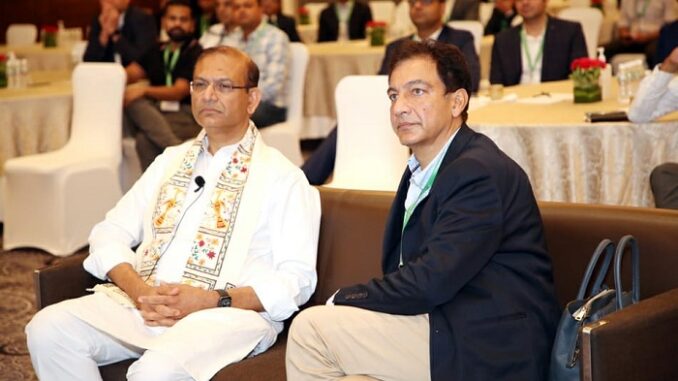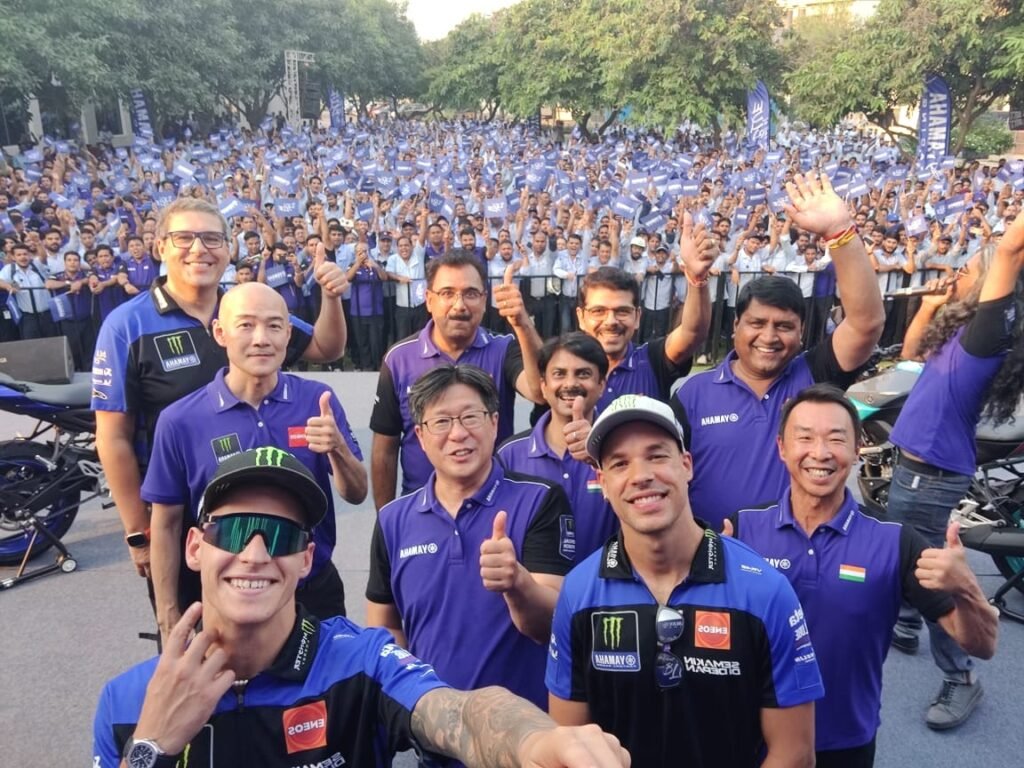
Net zero is Net Positive. Green frontier development is all about sustainability and competitiveness. Combining digital and green for solutions tailor made for India – is the idea of the green frontier: Shri Jayant Sinha, Chairperson, Parliamentary Standing Committee for Finance and BJP Lok Sabha Member of Parliament from Hazaribagh, Jharkhand at IVCA Circles event.
New Delhi, July 2022: The Indian Private Equity and Venture Capital Association (IVCA) hosted the IVCA Circles event, New Delhi Edition – “From the vantage point”. The event primarily focused on the PE/ VC and startup landscape in India, 2022, and the road ahead. The event kick-started with a power-packed keynote address by Shri Jayant Sinha, the Chairperson of the Standing Committee for Finance, Parliament of India, followed by three panel discussions on various subjects and an interesting fireside chat discussing Funds-of-funds Landscape in India with Shri. Gaurang Dixit, Director (Finance) / CEO, NSIC Venture Capital Fund Limited. The event was attended by 250+ professionals from 170+ PE/VC Funds, LPs, Family Offices, CVCs, Policymakers & Regulators, Knowledge Partners, entrepreneurs and others from the investment ecosystem.
Shri Jayant Sinha, Chairperson, Parliamentary Standing Committee for Finance and BJP Lok Sabha Member of Parliament from Hazaribagh, Jharkhand, graced the event and stated, “Investing in net zero is not impact investing. When we talk about the Green frontier or net zero, we are actually talking about India’s development. Green frontier development is all about sustainability and competitiveness where we will make India competitive and our future sustainable. And this will be driven by the amount of investments the PE/VC industry will put in. We need ~USD 2-3 trillion of capital to reach net zero and it is a great investment opportunity, even bigger than the digital revolution.”
He added that “To be net zero by 2070, we need to start bending the curve now. A host of industries will have to be created and will have to transform the entire economy. Even if we think about Atmanirbhar Bharat – it is all about net zero Bharat which is competitive, sustainable, and resilient.”
Talking about the state of the market, 2022 and the way forward for PE/VC, Sophia Nadur, Managing Partner (new markets) bp Ventures, said that “There is money in this green economy. And I don’t think this recession is going to really impact, especially at the early stage. And especially when early-stage companies need us more than ever, to help them with product market fit.”
Sharing his views on the retail investors’ dimension, Sandeep Sinha, Co-Founder and Managing Partner, Lumis Partners, said that “The biggest hope is not necessarily from an institution standpoint, but from a retail standpoint and we will need some regulatory changes. It will need education and learning; it will need some level of socialization. But if we can pull in this particular asset class to retail investors, it will open up a completely different world altogether.”
Industry veteran Prashant Prakash, Founding Partner, Accel Partners India, shared 3 key ingredients that entrepreneurs should possess. He said that “The expectations that profitable unicorns can be made in 4-5 years, is far-fetched. The average time to build a profitable company in India is about 13-15 years. So, we need to get realistic and set the right expectations. The ability to push back the investors and not do things that are kind of the attractors in the bull markets defines the sustainable entrepreneurs.”
He further added that “Entrepreneurs are focusing on building businesses as platforms. They have to build these platforms with a view that this is not a quick shortcut, and it is a company that should survive multiple generations. So, take time and build platforms that can work at a scale. One must invest time and do that frugally.”
He concluded by saying, “Lastly, understand Indian consumers well. Indian consumers are not ready to pay and hence it is extremely important to go deeper in the backend especially in a B2B business to create value.”
While moderating an interesting panel on “Path to USD 1 trillion SaaS Opportunity for India”, Priya Rajan, Managing Director, Silicon Valley Bank, summarized the discussion by advising the founders that “Whether you are building SAAS in India for India or SAAS in India for the USA, think global from day one. Mindset matters and the good thing is, it is happening on a daily basis at this moment.”
The event was concluded with an informative fireside Chat with Shri. Gaurang Dixit, Director (Finance) / CEO, NSIC Venture Capital Fund Limited discussing the Fund-Of-Funds Landscape in India. Mr. Dixit explained the structure of the MSME Funds-of-funds, the concept and thought process behind the structure and the process for both investors, fund managers and the entrepreneurs to be part of the initiative.
Some other key takeaways were:
“It is a time to be able to focus on the core competency, align your resources, and invest in the companies where you really believe what the value is versus doing one thing and trying out into the side. I think the moment there is a clear acknowledgement, the shift towards the culture will come. And that will take time. It’s a matter of just calibrating and accepting the reality in doing the right balance between the different variables which is going to be a little bit of a challenge,” said Sandeep Sinha, Co-Founder and Managing Partner, Lumis Partners.
While sharing his success story, Prashant Pitti, Co-Founder, EaseMyTrip shared that “Consistency and maintaining the unit economics are the two key ingredients of our secret sauce to success. You have to respect the unit economics and you have to ensure that your costs are lesser than that. This is exactly what we have been maintaining. Full control over our operations has given us the loyalty of our talent pool and hence the delta. Through this, we have been able to manage our costs, promise to the consumer, and deliver the quality.”
“The way ecosystem has evolved, and the world continues to flatten, there is no reason for any Indian startup to not grow globally,” said Rahul Garg, Founder, Moglix.
“USD 1 trillion in SaaS will be possible only when we will be building for the world. And when you are building for the world, the product has to be the world’s best. We must take a lot of learning while building products in India and provide high value to the customers globally,” said Pawan Gupta, Co-Founder, Fashinza.
“Add service element to the best product and that will help us achieve the target. Building the best product and adding a customer experience layer is going to be extremely important for us to get to USD 1 trillion. What we need to do is – Build great products and then sell it right”, said Akshay Ghulati, Co-Founder, Shiprocket





